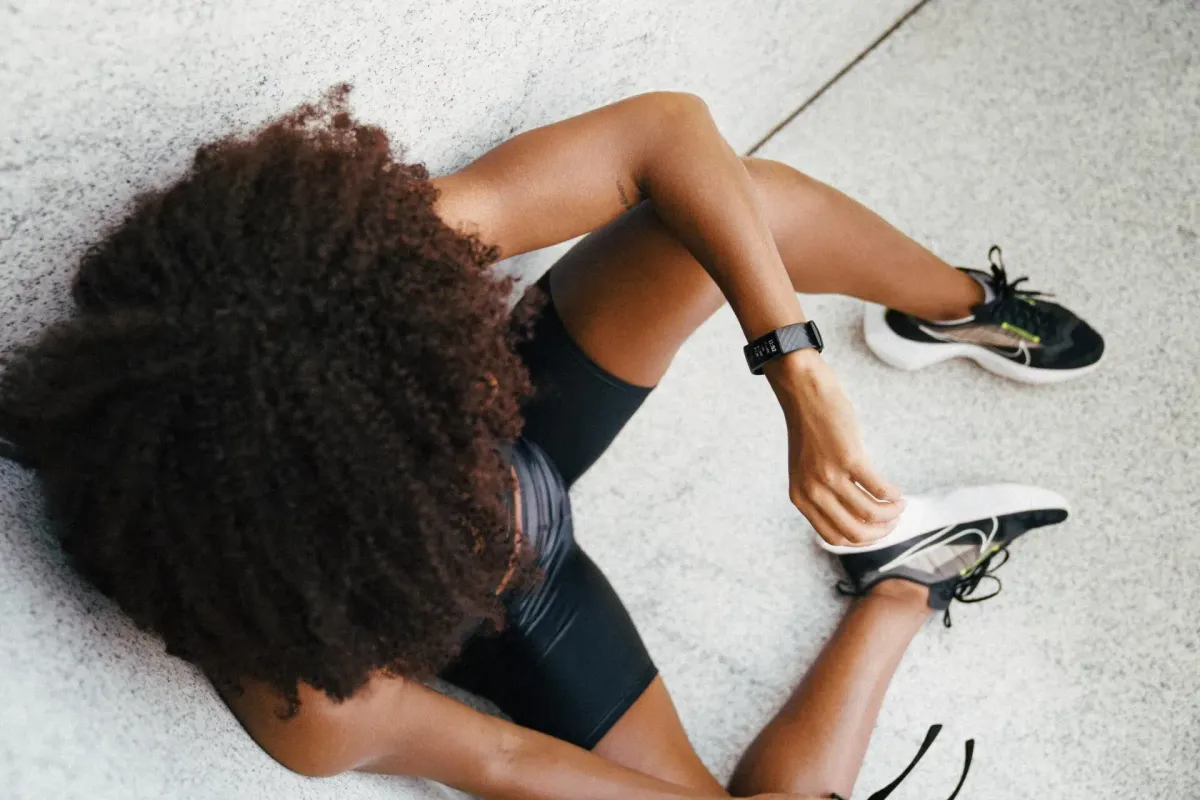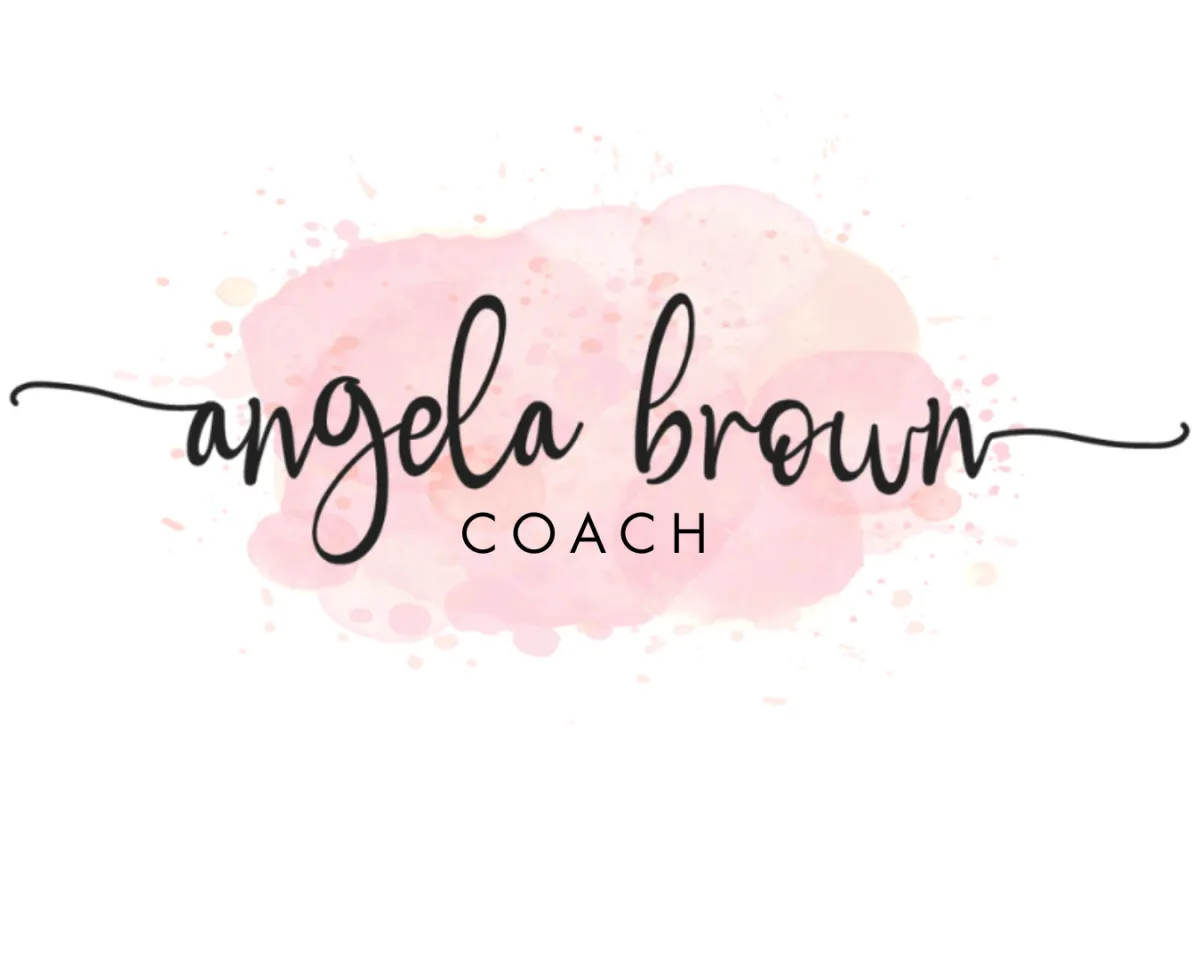READ UP ON THE LATEST HORMONE AND THYROID NEWS!

Using fitness trackers on your thyroid health journey
Fitness trackers and - as the techies call them - “wearables” are really popular right now, and I know lots of women who are considering them. So, I wanted to share my thoughts with you!
But before jumping into those thoughts, let’s get two things straight.
First, you absolutely DO NOT need a fitness tracker. If it’s something you’re not interested in, doesn’t fit your lifestyle, or is out of budget, that’s completely fine! Your health journey won’t be any less successful if you don’t have one.
Second, nothing in this post is sponsored! This is my genuine opinion and experience.
Okay, let me start by telling you a little story.
Many years ago I used to be a caffeine addict. I couldn’t start my day without caffeine... and an enormous amount, at that.
What I never realized was how bad it affected my sleep. Even when I thought I had a good night of sleep, I never really had a true, deep sleep.
After doing that for years and years, my thyroid and adrenals definitely paid the price.
I started to make a direct connection between my caffeine intake and my hypothyroidism symptoms. I realized I need to do something to hold myself accountable.
That’s where fitness trackers came in!
Over the last few years, I’ve been using my Oura Ring to (amongst other things) track my sleep schedule and try to assess what I did the day before that might have thrown off my sleep. I love that this also holds me accountable!
The Oura Ring helps you realize your potential through three simple scores: Readiness, Sleep, and Activity. While you’re awake, Oura captures data that reflects your activity and movement. When you’re sleeping, the Oura Ring captures useful data as nighttime is the best opportunity to get an accurate read on your overall health as your body is in a more consistent state.
Now, of course, Oura Ring is by no means the only fitness tracker out there. Depending on what you’re looking for, your budget or your style, you could check out brands like FitBit, Garmin, Apple Watch, Samsung Galaxy Watch, LetsFit, Coros, and so many more!
If you’re specifically looking for a fitness tracker to support your thyroid health journey, here are a few features I recommend you look for:
Sleep tracking. Sleep directly impacts your thyroid. By having a sleep tracker, you can understand how much REM and deep sleep you’re getting, and try to adjust your daytime and evening routines to get a better, more restful sleep.
Heart rate monitor. Being in a long-term aerobic state (for example, during a long run or spin class) can cause your body to go into fight or flight mode, and cause a lot of stress. When you have hypothyroidism, you should be keeping the heart rate a bit lower and focusing more on those anaerobic activities. By having a fitness tracker with a heart rate monitor, you can better assess how your workouts may be impacting your weight loss and overall thyroid health.
Step counter. This feature is pretty standard in even the most basic fitness tracker, and that’s for a good reason! Setting yourself a daily step goal can keep you active, reduce stress, and help you on your overall health and wellness journey.
There are lots of other features you can look at, including analyzing your breaths per minute, showing your stress levels, letting you track water intake, and so much more. Any of all of these may be helpful for you, depending on your own needs and goals.
As I said at the top, fitness trackers are by no means necessary for a journey to optimal health, but for many women, they can help!
Do you use a fitness tracker? If so, leave me a comment telling me which type you have & what your favorite features are!

Using fitness trackers on your thyroid health journey
Fitness trackers and - as the techies call them - “wearables” are really popular right now, and I know lots of women who are considering them. So, I wanted to share my thoughts with you!
But before jumping into those thoughts, let’s get two things straight.
First, you absolutely DO NOT need a fitness tracker. If it’s something you’re not interested in, doesn’t fit your lifestyle, or is out of budget, that’s completely fine! Your health journey won’t be any less successful if you don’t have one.
Second, nothing in this post is sponsored! This is my genuine opinion and experience.
Okay, let me start by telling you a little story.
Many years ago I used to be a caffeine addict. I couldn’t start my day without caffeine... and an enormous amount, at that.
What I never realized was how bad it affected my sleep. Even when I thought I had a good night of sleep, I never really had a true, deep sleep.
After doing that for years and years, my thyroid and adrenals definitely paid the price.
I started to make a direct connection between my caffeine intake and my hypothyroidism symptoms. I realized I need to do something to hold myself accountable.
That’s where fitness trackers came in!
Over the last few years, I’ve been using my Oura Ring to (amongst other things) track my sleep schedule and try to assess what I did the day before that might have thrown off my sleep. I love that this also holds me accountable!
The Oura Ring helps you realize your potential through three simple scores: Readiness, Sleep, and Activity. While you’re awake, Oura captures data that reflects your activity and movement. When you’re sleeping, the Oura Ring captures useful data as nighttime is the best opportunity to get an accurate read on your overall health as your body is in a more consistent state.
Now, of course, Oura Ring is by no means the only fitness tracker out there. Depending on what you’re looking for, your budget or your style, you could check out brands like FitBit, Garmin, Apple Watch, Samsung Galaxy Watch, LetsFit, Coros, and so many more!
If you’re specifically looking for a fitness tracker to support your thyroid health journey, here are a few features I recommend you look for:
Sleep tracking. Sleep directly impacts your thyroid. By having a sleep tracker, you can understand how much REM and deep sleep you’re getting, and try to adjust your daytime and evening routines to get a better, more restful sleep.
Heart rate monitor. Being in a long-term aerobic state (for example, during a long run or spin class) can cause your body to go into fight or flight mode, and cause a lot of stress. When you have hypothyroidism, you should be keeping the heart rate a bit lower and focusing more on those anaerobic activities. By having a fitness tracker with a heart rate monitor, you can better assess how your workouts may be impacting your weight loss and overall thyroid health.
Step counter. This feature is pretty standard in even the most basic fitness tracker, and that’s for a good reason! Setting yourself a daily step goal can keep you active, reduce stress, and help you on your overall health and wellness journey.
There are lots of other features you can look at, including analyzing your breaths per minute, showing your stress levels, letting you track water intake, and so much more. Any of all of these may be helpful for you, depending on your own needs and goals.
As I said at the top, fitness trackers are by no means necessary for a journey to optimal health, but for many women, they can help!
Do you use a fitness tracker? If so, leave me a comment telling me which type you have & what your favorite features are!

CALL US TODAY! (314) 226-3137
Content, including images, displayed on this website is protected by copyright laws. Downloading, republication, retransmission or reproduction of content on this website.

